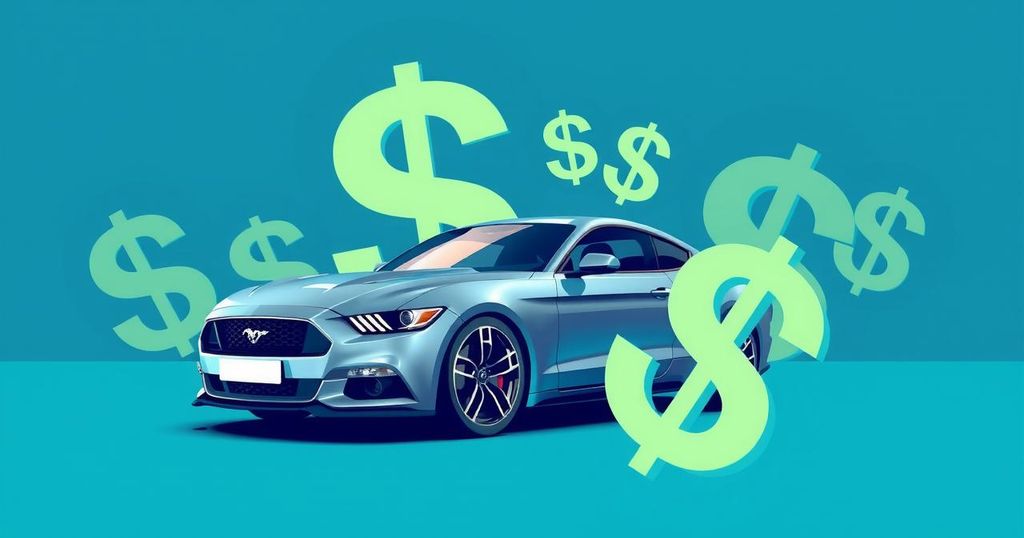Impact of Trump’s 25% Auto Tariff on Indian Automotive Companies

US President Donald Trump has announced a 25% tariff on overseas auto imports, impacting Indian companies like Tata Motors and Eicher Motors. While JLR, a subsidiary of Tata Motors, has significant US sales exposure, other firms like Samvardhana Motherson have protective measures due to their manufacturing bases in the US. The auto component export sector remains vital, with India contributing $21.2 billion to the global market.
In the financial year 2024, India exported auto components valued at $21.2 billion, contributing significantly to the global auto component market worth $1.2 trillion. The announcement by US President Donald Trump of a 25% tariff on overseas automobile imports is set to directly affect Indian companies such as Tata Motors, Eicher Motors, Sona BLW, and Samvardhana Motherson. These companies export their auto components primarily to markets in Europe, Japan, South Korea, and China, which supply the US market.
Tata Motors, while not directly exporting to the US, has a prominent subsidiary, Jaguar Land Rover (JLR), which has substantial sales in the US. According to JLR’s FY24 annual report, the US constituted 22% of their overall sales, with around 400,000 vehicles sold worldwide in FY24; however, these vehicles are primarily produced in the UK and other international plants, now exposed to the newly imposed tariff.
Eicher Motors, known for producing Royal Enfield motorcycles, faces challenges too, especially since the US represents a key market for its 650cc models. Samvardhana Motherson International Ltd, a significant player in auto components, maintains a robust presence in both the US and Europe. It supplies parts to major American automakers, including Tesla and Ford. Since the company has manufacturing units in the US and Europe, it holds a protective advantage against the import tariffs.
Sona Comstar specializes in automotive systems and components, deriving 66% of its revenue from US and European markets. To mitigate potential risks from tariff impacts, Sona BLW is diversifying its export base towards markets in China, Japan, and South Korea, intending for these regions to contribute over 50% of its revenue within five years. Other notable firms with considerable export exposure include Bharat Forge, Sansera Engineering Ltd, Suprajit Engineering, and Balkrishna Industries.
Overall, India’s auto component exports are significantly influenced by global trade dynamics, with the US and Europe being major import markets, accounting for approximately 4.5% of total global trade in this sector.
The 25% auto tariff imposed by President Donald Trump is likely to affect several Indian companies in the automotive sector, especially those heavily reliant on exports to the US and Europe. Companies like Tata Motors and Eicher Motors will face challenges, while firms such as Samvardhana Motherson with established manufacturing in the US may be more insulated. The dynamic nature of these tariffs underscores the importance of market diversification for Indian automotive firms.
Original Source: www.hindustantimes.com





